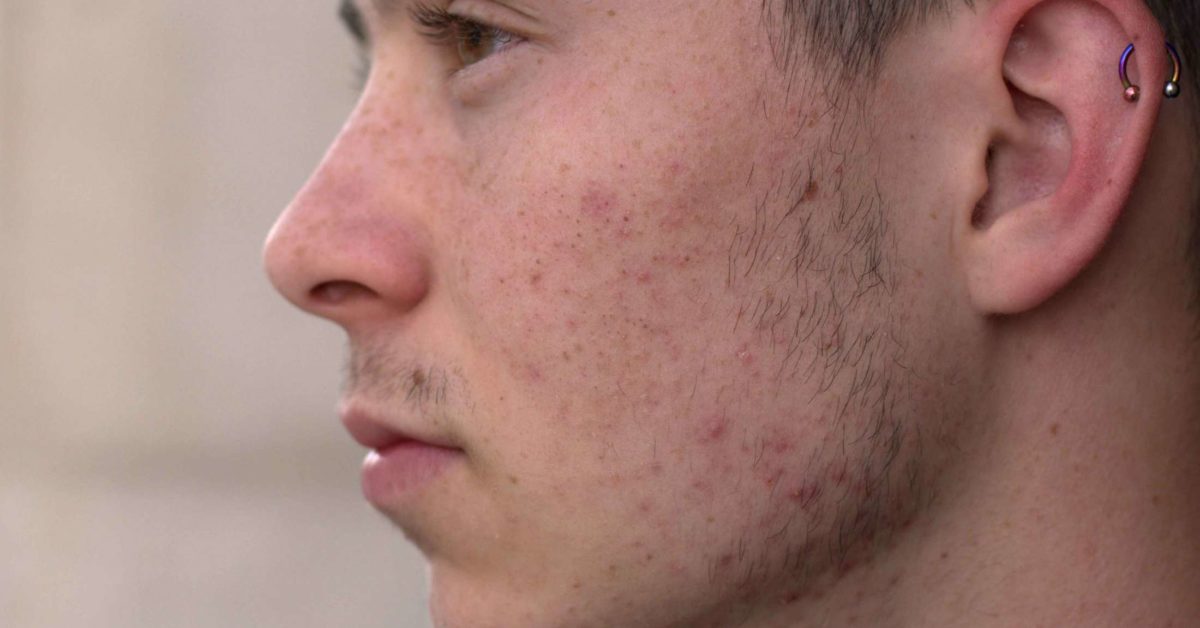
If you buy something through a link on this page, we may earn a small commission. How this works.
There are many misconceptions about masturbation. A lack of research into its long-term effects may contribute to some of these misapprehensions. Both masturbation and acne relate to hormonal changes, but is there a link between the two?
It is a common myth that masturbation causes acne. While both are common during puberty, this is the only real link between them.
Keep reading to learn more about the relationship between masturbation and acne, the causes of acne, and how to treat it.
Hormonal changes occur during puberty. These hormonal changes cause the body to produce more oil, which may contribute to the development of acne. Many people also start masturbating during puberty, which also has a small effect on hormone levels.
Because acne and masturbation tend to occur around the same time, this could explain the common misconception that masturbation causes acne. However, it is a myth — both masturbation and acne relate to hormonal changes.
Although masturbation can cause changes in hormone levels, these changes are minimal.
Testosterone levels rise during masturbation and return to normal after ejaculation. The effect is temporary and does not appear to have any long-term health implications.
One study looked at hormonal changes after masturbation following a period of abstinence. The findings indicate that any hormonal changes following masturbation are temporary and minimal. This, however, only looks at the short term effects.
There has been little research into the long-term effects of masturbation on hormone levels.
Acne is a skin condition that causes whiteheads, blackheads, and pimples to develop.
Pores under the skin connect to glands that produce sebum, which is n oily substance. These glands can become blocked by a buildup of sebum, dead skin, or other debris. Bacteria can accumulate and cause inflammation. This leads to the visible symptoms of acne, such as pimples.
Acne can develop anywhere on the body. It is most common on:
While acne can develop at any age, it usually occurs and is most prominent during puberty.
The exact causes of acne are unclear but may relate to:
- hormonal changes
- medicines
- cosmetic use
- genetics
Poor hygiene does not cause acne, but it can make the symptoms worse in people who already have it.
There are many different treatments for acne. Choosing the right one will depend on the severity of the condition.
There is a variety of over-the-counter (OTC) medications that are suitable for most types of acne. They are available as gels, creams, soaps, or lotions.
In mild cases, suitable OTC products should contain active ingredients such as:
- benzoyl peroxide
- salicylic acid
Some products will contain more than one of these substances.
Doctors recommend that people try combinations of these products when one does not work. Acne can have different causes that require different treatments. Start with one type of treatment and add a second if there is no improvement within 4 to 6 weeks.
There are also many natural remedies for treating acne. Read about them here.
In moderate cases, a doctor may prescribe antibiotics to treat the acne if it is due to a bacterial infection. The antibiotics, which can be a cream or a pill, will help fight the bacteria that are causing the inflammation. This may be in addition to OTC medications, such as benzoyl peroxide. Antibiotics may include the following:
- clindamycin
- erythromycin
In severe cases, such as cystic acne (nodular acne), a doctor may suggest isotretinoin. This drug comes as a capsule and is highly effective for treating acne. However, isotretinoin can have serious side effects, including:
Doctors will only use isotretinoin in the most severe cases because of all these side effects. Anyone taking this medication should keep an eye out for any of these side effects and report them to a doctor if they experience any of them.
While it is difficult to prevent acne from developing, some tips for people who are prone to acne include:
- avoiding washing more than twice a day
- washing sweat off the face
- avoiding scrubbing areas of skin prone to acne
- using cosmetic products that do not clog pores
- trying not to touch or pick at the acne
- keeping bedding and clothing clean
- spreading acne medication on all acne-prone areas, not just where outbreaks occur
Acne is a widespread condition and rarely has any serious health implications.
Most cases of acne do not require a doctor. OTC medications should clear away symptoms without the need for stronger medicine.
If the acne does not improve after 4 to 6 weeks of home treatment, consider seeing a doctor.
Masturbation does not cause acne.
Hormonal changes may contribute to the development of acne, and masturbation can also cause changes in hormone levels, but these disappear after ejaculation. Furthermore, these hormonal changes are minimal and do not contribute to the development of acne.
People tend to start masturbating and develop acne at around the same time, typically during puberty. This is likely a source of the confusion and the myth that masturbating causes acne.
The exact cause of acne remains unclear.
Acne is a widespread condition with many different treatments. Most cases of acne are mild and do not require a doctor. In more severe cases, a doctor may prescribe antibiotics or stronger forms of medication.
Acne medications are available to purchase in stores and online.
